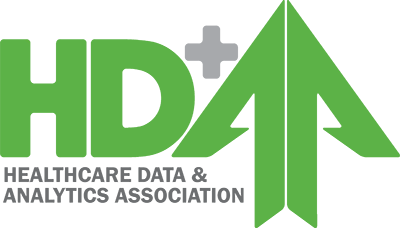Data GOVERNANCE and LITERACYData governance and literacy are two of the most active discussion topics at HDAA. The SIG hosts an online presentation or panel discussion each quarter and meets in roundtable form at our annual conferences. Valerie Smothers and Valerie Strobel co-lead the group Data Governance Advisory Team
Upcoming events - Members Register in the Events Calendar
Recently completed events - Members can see recordings in the LIBRARY
September 25th, 2025 the Epic SIG combined with the Data Gov/Lit SIG and Duke University Health System to discuss ""Self-service Reporting with SlicerDicer SideKick: Considerations for Effective Implementation".
August 2025: Building a Data-Fluent Information Ecosystem
Ryan Sousa, former CDAO at Seattle Children’s Hospital, as he guides you through the path to data fluency—a strategic framework that moves beyond basic literacy to drive sustained innovation and growth. Designed for organizations that understand the value of data, this webinar explores how to shift from fragmented initiatives and foundational infrastructure to enterprise-wide data mastery. Discover what it means to become truly data-driven. February 2025: Epic Analytics Catalog: A Governance Asset December 2024: Erin McGeachie and Jason Chiu compared approaches to data governance at The Ottawa Hospital and University Health Network. October 2024: Valerie Strobel of Mayo Clinic discussed ways to measure the effectiveness and adoption of data literacy. September 2024: The Data Governance and Data Literacy group conducted multiple roundtable discussions at the HDAA 2024 annual conference, in Chapel Hill, N.C. August 2024: Dan Ryan at Beth Israel Lahey Health reviewed BILH's implementation of the open-source data catalog tool Atlas. April 20: Brent Dukes of Oregon Health & Science University will continue his discussion of OHSU's data governance evolution, a follow-up to his presentation from April 2022. Dan Ryan of Riverside Healthcare spoke in July on One Catalog to Rule Them All: A Data Governance Journey. Click here for the full archive of data governance recordings. The archive is available only to HDAA members. Want to join the conversation? Post a question on the data governance forum. Accessible only by HDAA members For more information, or to volunteer for the advisory team, contact the SIG Chair from the contacts list or contact The Program Director HDAA Programs
What is data literacy?According to Gartner, data literacy “is the ability to read, write and communicate data in context, including an understanding of data sources and constructs, analytical methods and techniques applied, and the ability to describe the use-case application and resulting value.” More informally, data literacy is the ability of people to understand data within context based on the role they play. Much like general literacy concepts, data literacy focuses on building competencies to evaluate, construct and communicate meaning with data. The aim is to interact with and speak the language of data with confidence. Data literacy describes both an individual’s ability, as well as the ability of an organization to communicate meaning with data and leverage data for decision making. Data literacy:
|
| Examples of poor or limited data literacy | Examples of strong data literacy |
| Asking for "all the data". | Describing the problem you're trying to solve and/or the business value to better tailor data requests to the specific need. |
| Not wanting to share data with other teams, departments, groups | Sharing data as appropriate, with proper context and understanding and security in place. Understanding how your data can inform other business decisions. |
| Providing more data than is necessary for the use case, presenting possible violations of minimum necessary and other HIPAA rules | Providing the right data to the right use case with clearly understood parameters |
| Analytics and reports that leverage metrics inconsistently | Understanding what the ‘right data’ is; Giving people access to the right data, at the right time, for the right person |
| Accepting current-state reports, data sources, data types because “that’s the way we’ve always done it.” | Exploring new data sources, types; ensuring that you have all the data that’s needed (avoiding data bias) |
| Not understanding the source of data, definitions or context. Taking data at ‘face value’ for decision making rather than asking critical questions. | Asking questions about data, knowing its source and context, knowing how recent the data is, and confirming the quality of the data being used. |
| Assuming cause and effect when there isn’t one | Knowing the difference between correlation and causality |
Coming Attractions
- Building Engagement
- Data Literacy maturity model
- Executive leadership and buy-in
- Development and education
- Enablement
Additional Resources
Qlik: The Data Literacy Index
The Human Impact of Data Literacy
Be Data Literate: The Data Literacy Skills Everyone Needs to Succeed (Jordon Morrow)
Data Literacy Project: Data Literacy Assessment
